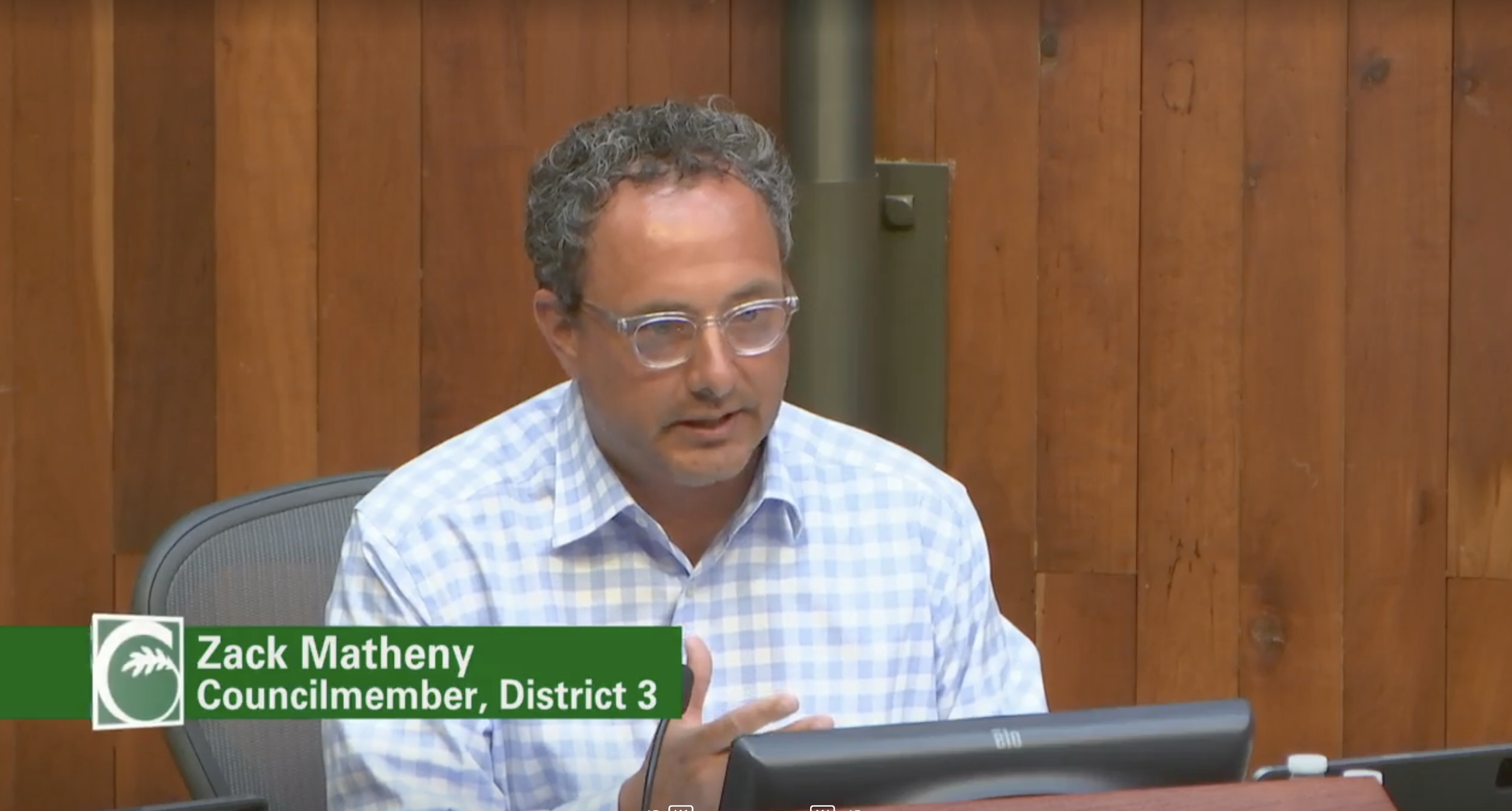
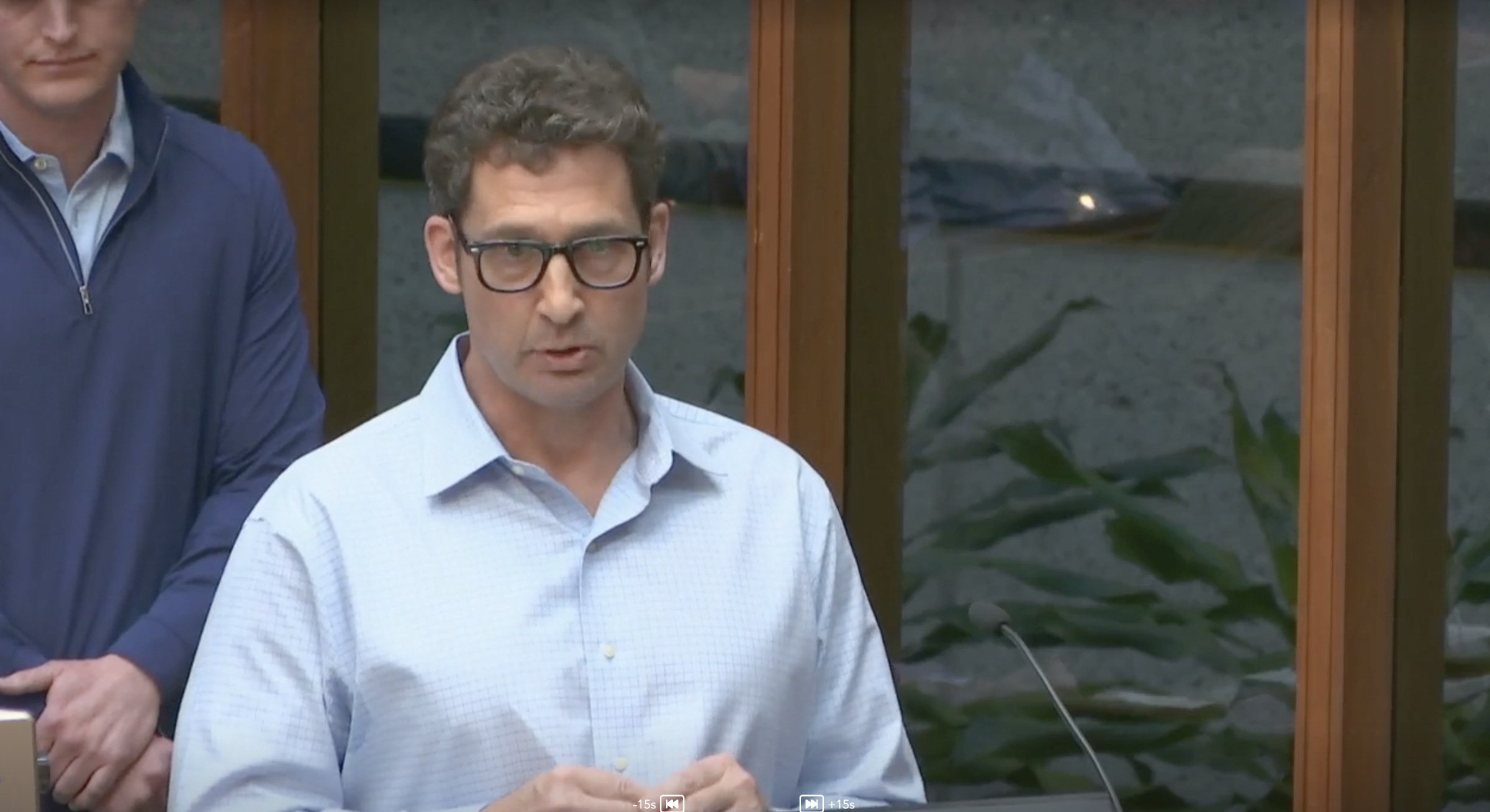
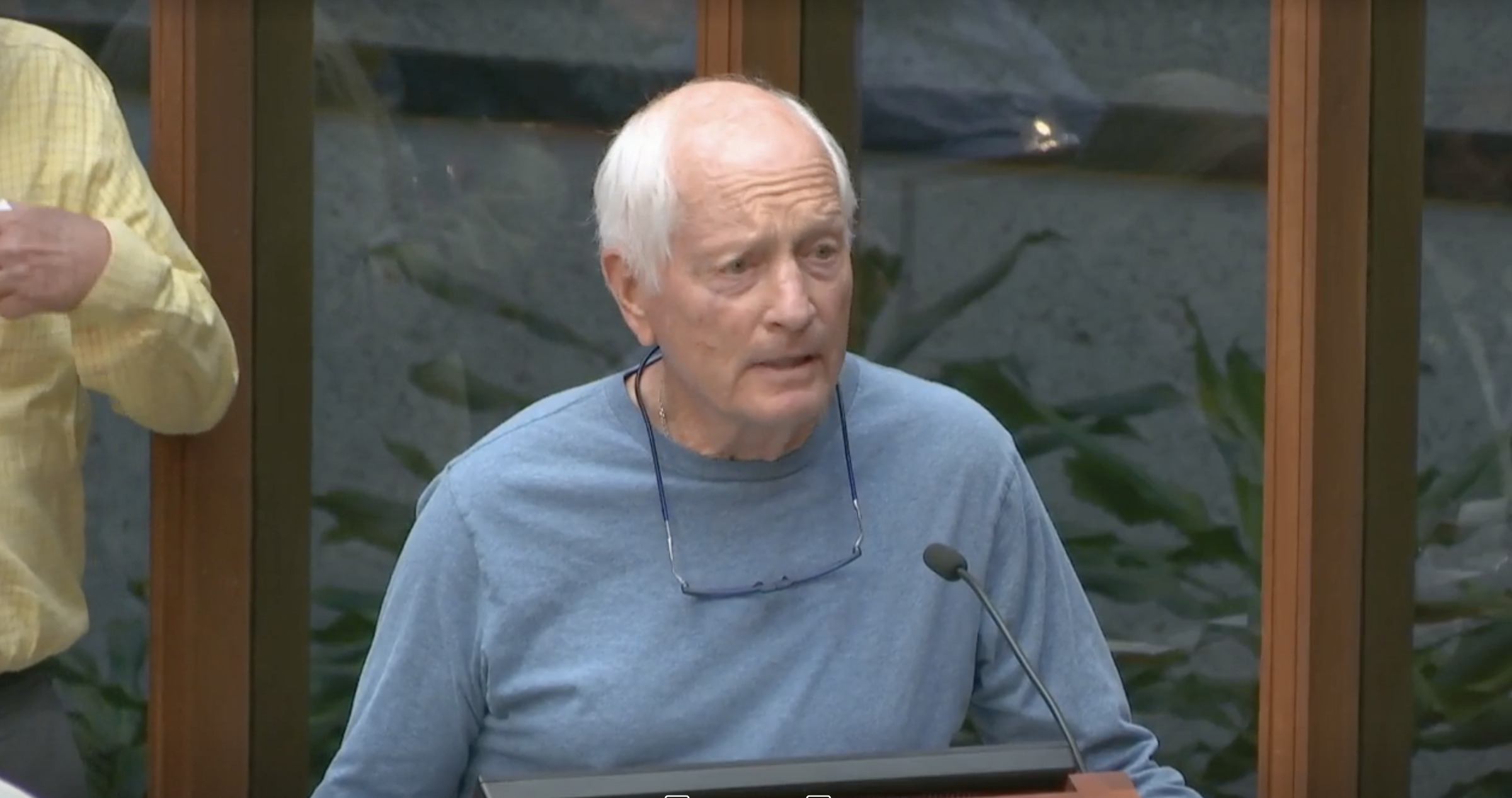
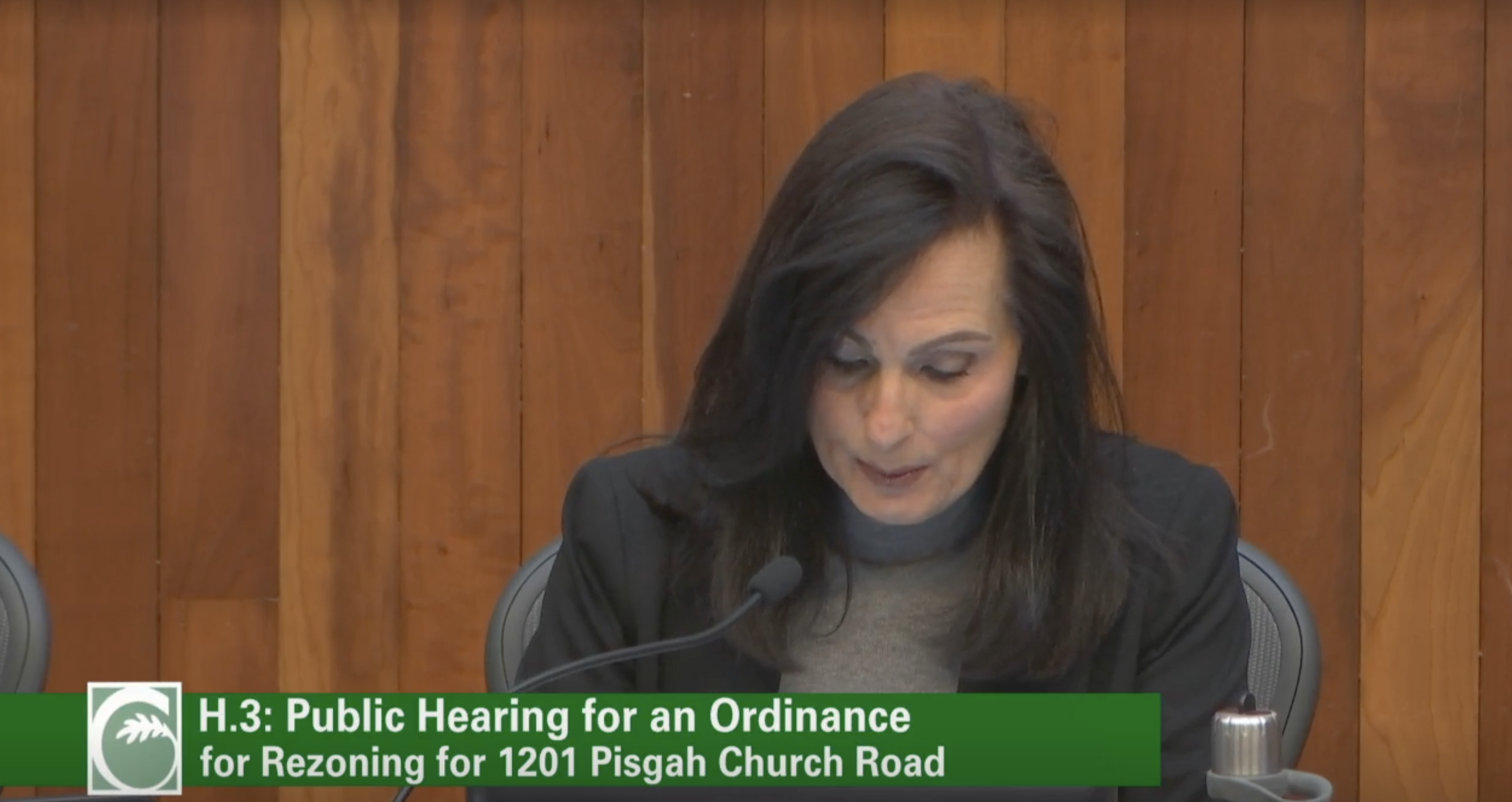
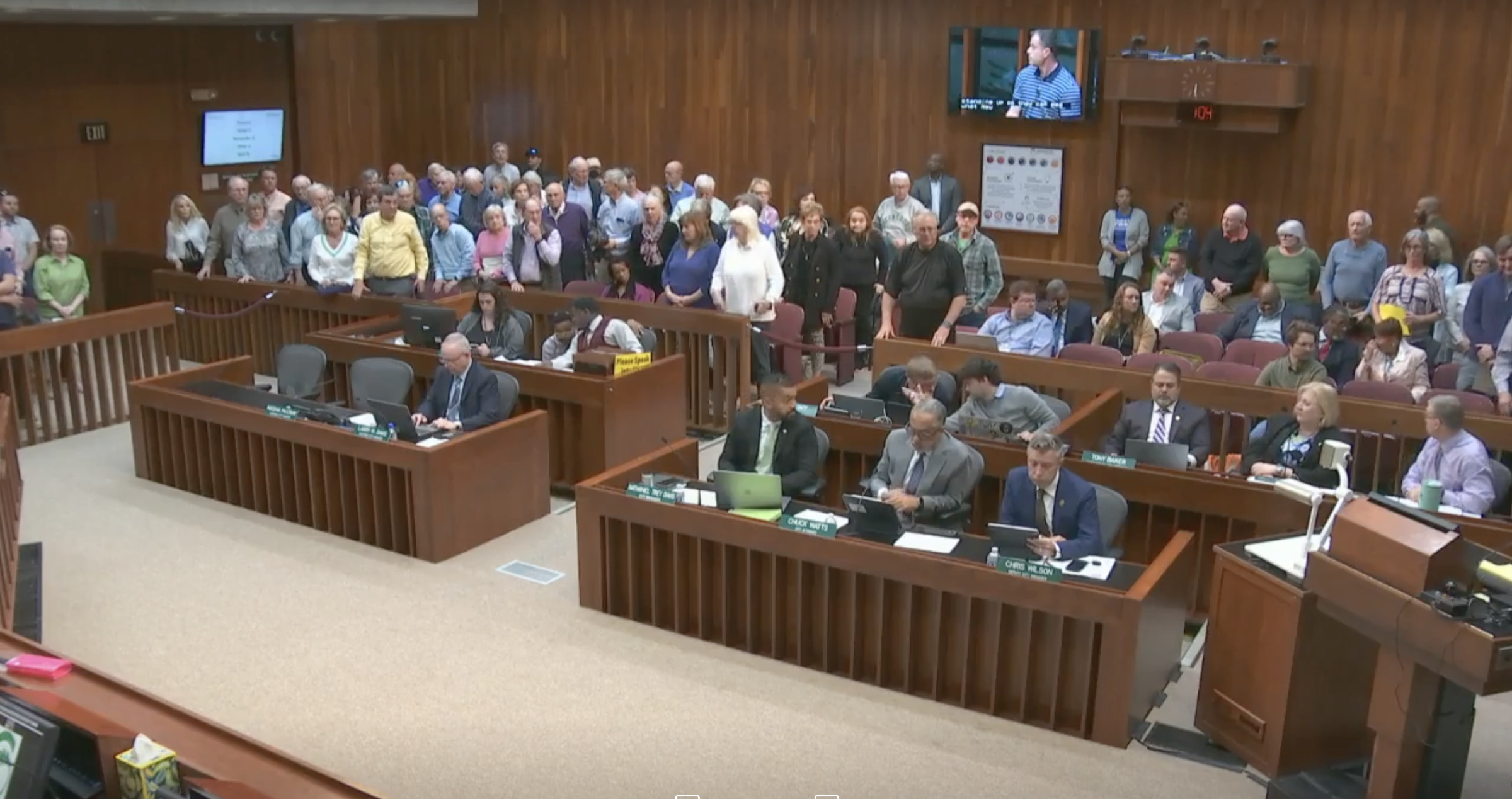
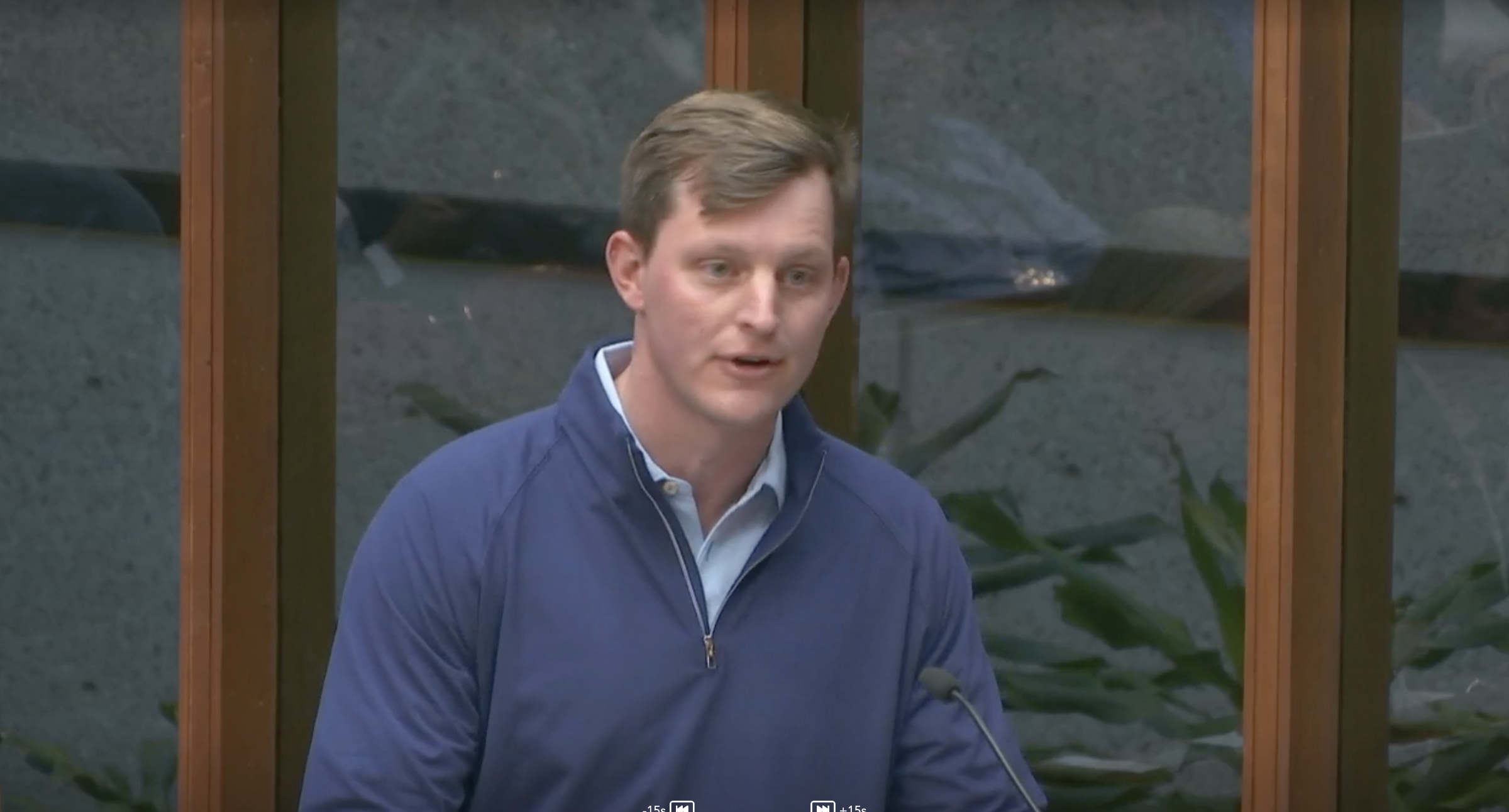
By Nicky Smith
April 16, 2025
On April 15, 2025, Greensboro’s City Council delivered a slap in the face to more than 2,000+ residents of New Irving Park. Despite months of organized, fact-based opposition to the rezoning of 1201 Pisgah Church Road, Councilmembers, one by one, chose to side with a developer and against the very people they were elected to represent.
This wasn’t just a bad decision. It was a public betrayal.
Councilmember Zack Matheny gave one of the most comprehensive land-use rebuttals the city has heard in years. He spoke not only as a councilmember but as a resident of New Irving Park. He laid out:
The lot is unsuitable for RM-12 zoning due to steep terrain, setbacks, and stormwater runoff risks
That it represents impermissible spot zoning
That the neighborhood already has diverse housing options and was intentionally and masterfully planned
The proposed development would dump traffic into a narrow, one-lane residential artery, endangering children and seniors.
Yet his colleagues praised his “passion” and then completely ignored the facts he presented. The decision was made before the meeting even began.
Thankfully, Councilwoman Nancy Hoffmann, who is not seeking re-election, has long been known for brushing off constituent concerns. On April 15, she lived up to that reputation. Her statements during the meeting were out of touch and flatly contradicted the facts.
She claimed this development aligned with the comprehensive plan, despite city planning staff noting that it was incompatible with single-family homes and its surroundings. She equated this rezoning to a 2015 rezoning on Hobbs and Friendly—two completely different areas with drastically different traffic and environmental factors. Her comments reeked of political deflection, not leadership.
Mayor Vaughan’s closing remarks were perhaps the most disturbing of the evening. Rather than thank the more than 200 residents who showed up and thousands of others who joined the New Irving Park community via social media and community meetings to engage in democracy, she scolded them.
She preached about change and growth and how people should “go with the flow,” dismissing legitimate concerns about safety, infrastructure, and neighborhood integrity. Her tone was patronizing and divisive—completely inappropriate for a Mayor who is supposed to unify the city, not lecture its residents.
Her message was loud and clear: “We know what’s best. You don’t.”
Newcomer Councilmember Jamilla Pinder had a chance to show independence. She attended neighborhood meetings. She walked the streets. But when the vote came, she sided with the entrenched political machine, without a single data point to counter the community’s concerns.
Her vote betrayed the very transparency and community-first values she campaigned on.
Councilmember Marikay Abuzuaiter sided with Matheny, but not out of principle. Her well-publicized bid for Mayor is underway, and it’s no secret that she wants to win District 3 voters.
Her speech was less about land use and more about political optics. Those paying attention could see right through the performance.
Councilwoman Sharon Hightower praised the developer and referred to sidewalk installation as a gift to the city rather than a fundamental infrastructure responsibility.
But it was Dr. Goldie Wells who truly crossed a line. Her remarks scolded and belittled the crowd of more than 200 citizens. She lectured the audience about how change is hard and people need to accept it, using her age and life experience to talk down to residents.
The message? Sit down. Shut up. The council will decide what’s best.
Councilman Hugh Holston gave a long-winded speech that sounded more like a TED Talk than a public service. He praised the process and the developer and ignored the project’s glaring flaws.
He framed the approval as a matter of progress and citywide housing needs, ignoring that this land was ill-suited, poorly accessed, environmentally challenged, and widely opposed.
Curiously absent from this high-stakes vote was Councilwoman Tammi Thurm. Her absence was notable because she had attended multiple community meetings and heard the opposition firsthand.
Without explanation, her failure to show up for the vote felt like abandonment of the community she had previously engaged with.
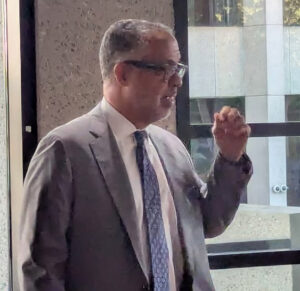 Perhaps the most jaw-dropping moment came after the vote was cast. In plain view of attendees, City Attorney Chuck Watts was seen giving developer BJ Johnson a fist bump—a gesture that many found completely inappropriate and unprofessional, particularly in light of such a contentious and community-opposed decision.
Perhaps the most jaw-dropping moment came after the vote was cast. In plain view of attendees, City Attorney Chuck Watts was seen giving developer BJ Johnson a fist bump—a gesture that many found completely inappropriate and unprofessional, particularly in light of such a contentious and community-opposed decision.
The gesture confirmed what many feared: backroom conversations had already occurred, and the outcome was never truly in doubt.
When city officials are seen congratulating developers moments after a controversial vote, it sends a chilling message to the public—that the fix was in, and public input was nothing more than theater.
Let’s be honest: the meeting was scripted. The vote was predetermined. The speeches were rehearsed. The City Council never intended to listen. Their minds were made up long before the people of New Irving Park stood to speak.
The Council’s actions on April 15 confirm what many have feared: our city is run by tone-deaf, out-of-touch political operatives who view public input as a formality, not a duty.
Perhaps worst of all, after ignoring the 200+ residents who packed the chambers, several Councilmembers offered pseudo-apologies, trying to soften the blow by claiming the TRC would handle the details.
Translation: “We’ve already said yes. Don’t bother us with the consequences.”
To further illustrate how tone-deaf and dismissive the process was, developer BJ Johnson brought in multiple speakers who do not live anywhere near the proposed development to support his rezoning request. These individuals had no direct stake in the community, yet were given time to speak in favor of a project that the actual residents, those most affected, overwhelmingly opposed. Their inclusion only reinforced the neighborhood’s belief that this project is an incompatible use of the land and a clear threat to the safety, traffic flow, and architectural harmony of New Irving Park.
This City Council has clarified its position: they don’t care what the public thinks.
But we do. In November 2025, the people of Greensboro will have a chance to elect a new generation of leaders—leaders with common sense, business experience, and the courage to listen.
We can end the reign of rubber-stamp rezoning, remove career politicians who treat the public like a nuisance, and bring transparency and accountability back to City Hall.
Greensboro deserves leaders who listen, respect the people’s will, and make decisions based on facts, not backroom deals. Remember what happened on April 15th when you head to the polls in November 2025. Let’s elect a City Council that puts neighborhoods first and restores trust at City Hall.